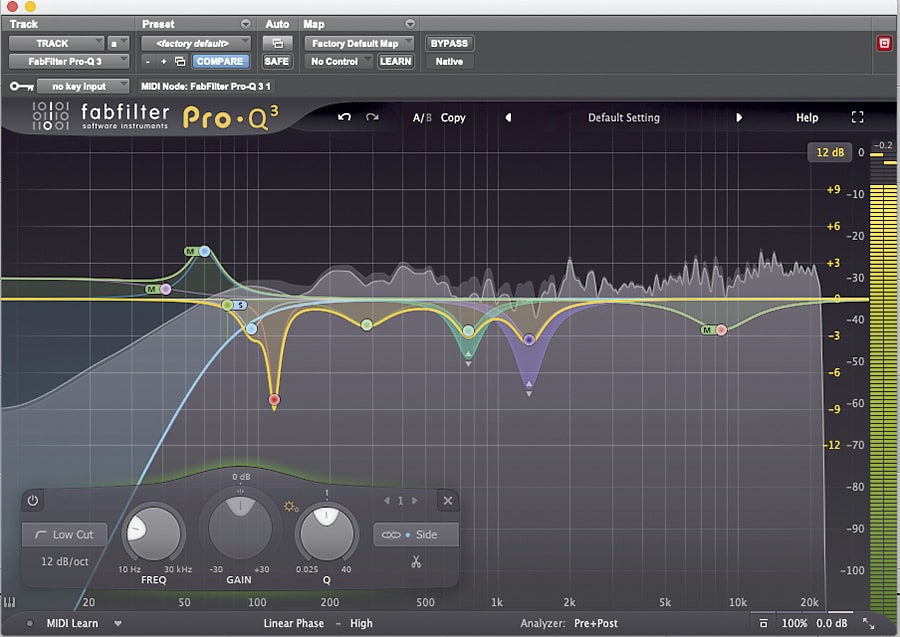



This is the ability to in effect solo a frequency or frequency band to hear their sonic qualities to allow you to make better mix decisions. So thus far I have been very complimentary of Pro-Q so does it have any real faults? If you had asked me a year ago the only thing that would have made me consider a competitors product namely DMG’s Equality or one or Brainworx EQ’s is their “Auto-Listen” function. Also the ability to select and affect Q and gain of a number of bands simultaneously by selecting them is extremely useful.Īnother positive about Pro-Q is its in-built spectral analyser so you can also see the potential problem areas and the affect that your EQ is having. You can add a seemingly unlimited number of notches should you wish. Two things that jump out at me about Pro-Q is that you can simply click where you want to add a filter and it just appears there with no band restriction. However packed within its simple but effective GUI are Mid/Side processing and Linear Phase settings to make it a real tour de force with mastering too. On the surface Pro-Q seems like a pretty small standard digital EQ. One thing that makes Pro-Q not only my favourite EQ but also one of my favourite plug-ins (if not my favourite outright), is that it is as easy for novices to use as it is rewarding for those experienced engineers. It only has one real serious competitor for its crown, which is DMG’s Equality. I’ll cut straight to the chase: Fabfilter Pro-Q is the most elegant, intuitive and enjoyable EQ I have ever used and, dare I say it, “The best on the market”.


 0 kommentar(er)
0 kommentar(er)
